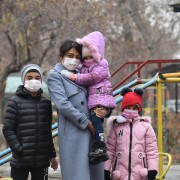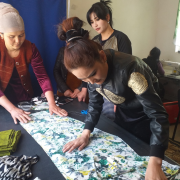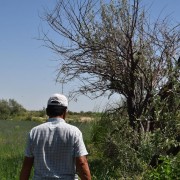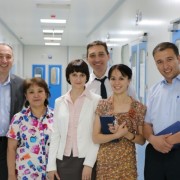Speeches Shim

Life was busy to say the least for Malika, an English teacher at a university in Tashkent and the mother of three children ages 10, 7, and 3. Then the pandemic hit, leaving everyone locked at home indefinitely. The whole world had slowed down, except for the deadly virus that was spreading rapidly.

Dilbar Ruziyeva lives in Markaz Mahalla in Angor district, located in the southernmost part of Uzbekistan’s Surkhandarya region with her husband and their daughter who has a physical disability. Dilbar married at the young age of 19 after which she didn’t pursue her studies. Without a university degree and with a special needs child, Dilbar has struggled to find employment. Her husband used to provide for their family. But once the pandemic hit, he, like millions of low-wage earners, got laid-off. For the first six months of the pandemic, the family lived off what they could grow in their garden. In July, Dilbar successfully completed sewing classes offered free of charge by Ayol va Shodlik Center, a non-governmental organization in Angor district. She now has the skills to earn a steady income and financially support her family.

The Fergana region of Uzbekistan, with its favorable conditions for agriculture, is famous for its production of delicious fruits and vegetables. Forty-five-year-old Olim (name changed) is one of several millions of seasonal farm workers in the Fergana region. He supports a family of three children and a spouse on his modest income.

Nasiba (name changed) is from the small town of Yakkabag in the Kashkadarya region of Uzbekistan. Nasiba married for the second time while pregnant with a child from her first marriage. After the wedding, the couple settled down in Bukhara where their daughter Charos was born a few months later. Nasiba’s new husband gave Charos his last name and raised her as his own.

Since 2014, USAID has been partnering with the Government and private sector in Uzbekistan to improve the quality and safety of medicines. One of the successes of this partnership has been ensuring the quality of medicines available to treat diseases of public health importance such as tuberculosis (TB).

Comment
Make a general inquiry or suggest an improvement.